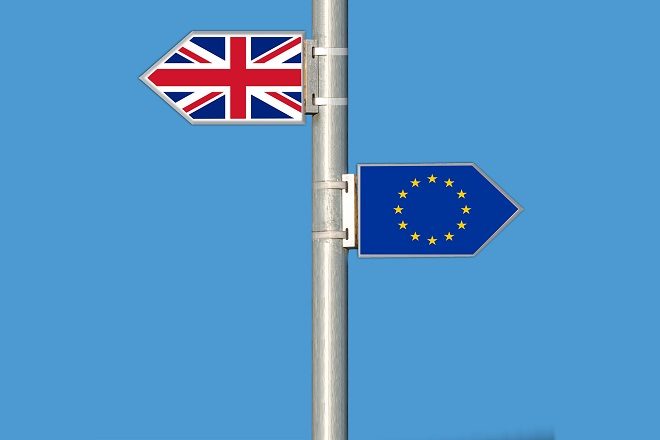Brexit may not happen anytime soon: report

June 28, 2016 (LBO) - Britain may not exit the E.U. anytime soon, as it needs to invoke Article 50 of the Lisbon Treaty of 2007 which grants member states the right to leave.
There will be at least two years of negotiations about the terms of Britain’s future relationship with Europe, and the invocation of Article 50 is likely to be delayed for quite a while, a New Yorker article states.
Prime Minister David Cameron’s decision to resign in the fall has stopped the clock until the start of September, when his successor could take his place.
Even if Boris Johnson, the former mayor of London, who helped lead the Leave campaign, were to win the leadership vote, it’s not clear when he would invoke Article 50.
On Monday, Johnson said that Britain’s departure from the E.U. “will not come in any great rush.” His primary intention seemed to be to prevent panic. “I cannot stress too much that Britain is part of Europe, and always will be,” he wrote.
Four days after the British public voted, narrowly, to leave the European Union, there are reasons to doubt that the referendum result will ever be implemented.
If Cameron had invoked Article 50 on Friday morning, Britain would now be on its way out: the exit process is irreversible. But thanks to the Prime Minister’s clever maneuver—which is surely what it was—the country has some time to reflect on the consequences of Brexit, which are turning out to be far more serious than many of the people who voted Leave realized.
In addition to plunging the country’s political system into chaos, the referendum result has prompted a big fall in the stock market and the value of the pound sterling, and it has raised questions about Britain’s creditworthiness.
On Monday night, news came out that Standard & Poor’s had stripped Britain of its triple-A credit rating, another blow to investors. Ordinary people may be more concerned that, with the school holidays coming up, the cost of taking a European vacation, which many Brits of all social classes do every year, has jumped by about twelve per cent.
Some respected economists are now predicting an economy-wide recession, and then there is the future of the British Union, which is much more ancient than the European Union. As the pro-Brexit writer Fraser Nelson pointed out at The Spectator on Monday, it is an exaggeration to say that a British departure from the E.U. would inevitably lead Scotland to declare independence from the U.K.—data from opinion polls doesn’t point in only one direction.
It can’t be denied, though, that Brexit would create the biggest crisis in the relationship between England and Scotland since the 1707 Acts of Union, and it would also raise serious questions about the future of Northern Ireland, which receives a lot of funding from Brussels, and which, like Scotland, voted to Remain.
As reality sets in, E.U. leaders may well be content to let the Brits stew in their own juices for a while. Initial talk of forcing the U.K. to begin the process of leaving straight away has been replaced by calls for patience.
Monday’s edition of the Wall Street Journal quoted Angela Merkel’s chief of staff, Peter Altmaier, as saying, “Politicians in London should have the possibility to think again about the fallout from an exit.” To leave now, he added, “would be a deep cut with far-reaching consequences.” A majority of the politicians at Westminster probably agree with Altmaier’s analysis. But what, if anything, can they do to reverse the march toward Brexit?
One possibility being floated by some pro-E.U. campaigners is a vote in the House of Commons against invoking Article 50. During the weekend, a number of constitutional experts pointed out that, under the British system, sovereignty rests in Parliament, and so the Leave vote was purely advisory. “MPs are entitled to vote against it, and are bound to vote against it, if they think it’s in Britain’s best interest,” Geoffrey Robertson, a prominent British barrister, told the Independent. “It’s not over yet.”
But Parliament simply overriding the result of the referendum may not be a realistic option. As Cameron said in announcing his intention to resign, “The British people have voted to leave the European Union, and their will must be respected.”
A more likely outcome is a general election, a second referendum, or both.
In 2011, Britain switched to a system of five-year fixed-term Parliaments, and under that system the next election isn’t due until 2020. But the Brexit crisis has already generated calls for the fixed term to be junked. In the Commons on Monday, Nick Clegg, the former leader of the Liberal Democrats, who served as Deputy Prime Minister from 2010 to 2015, called for an early election. Cameron didn’t reject the idea. He said that it would be for his successor, the next leader of the Conservative Party, to decide.
